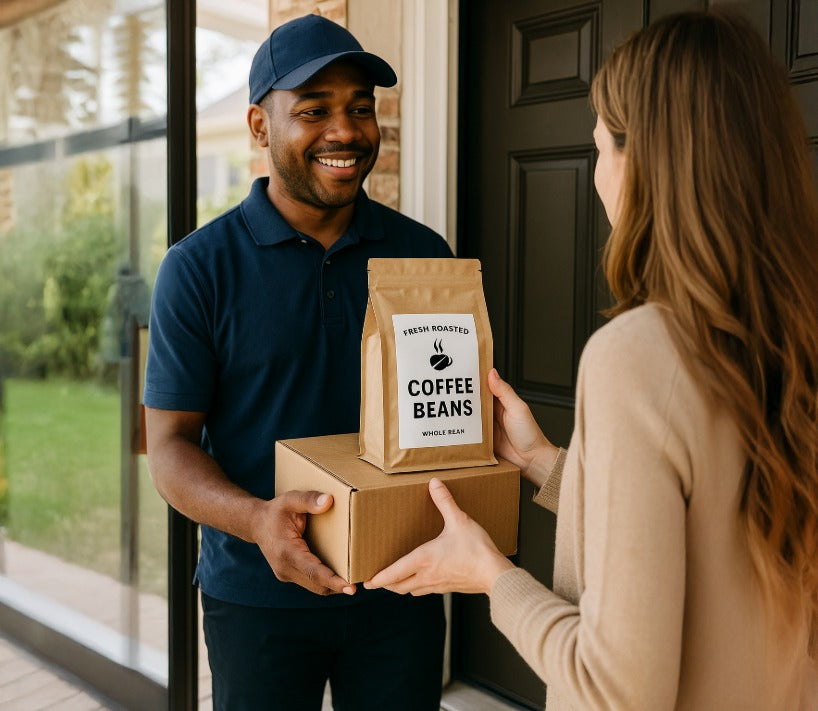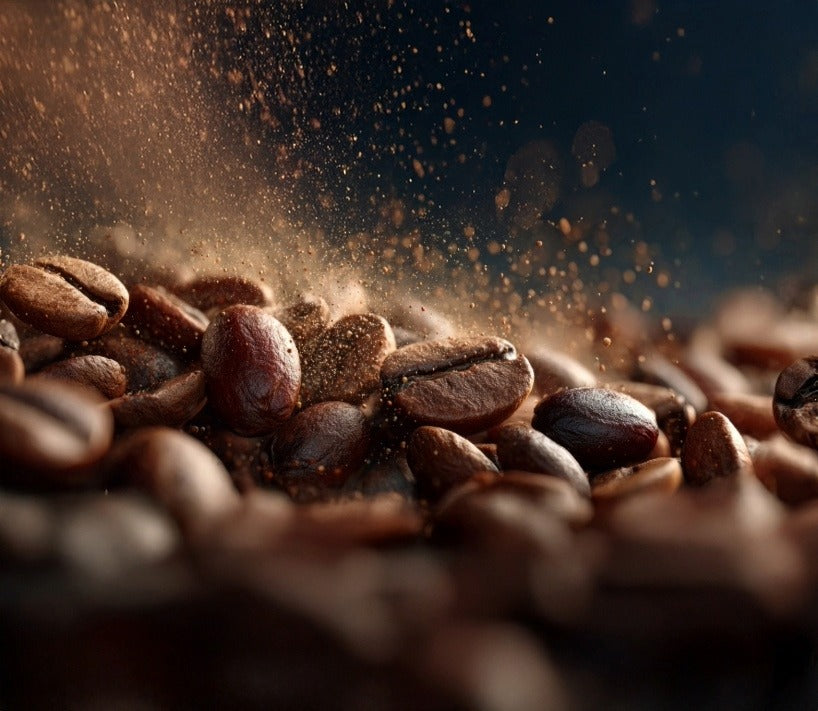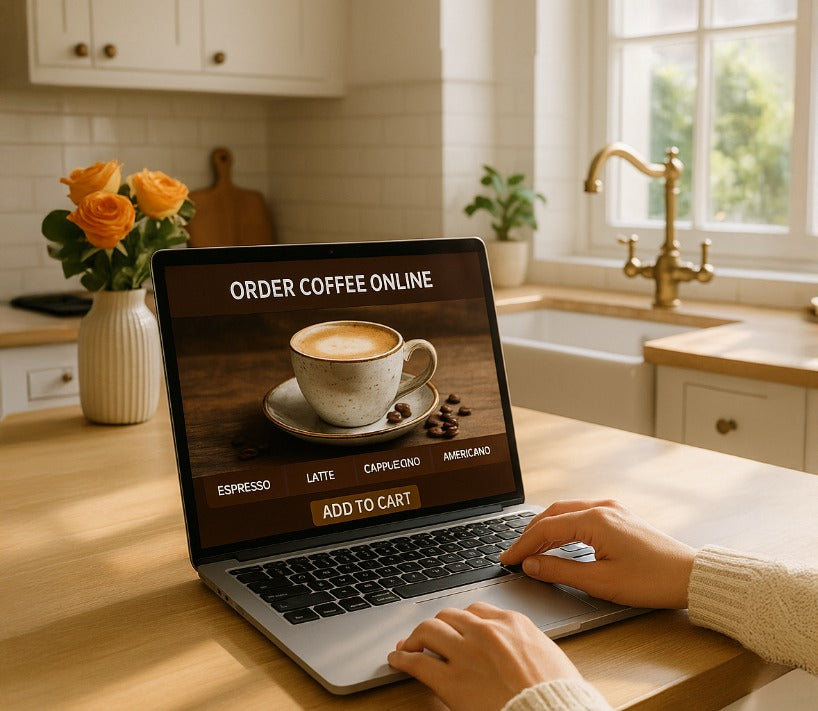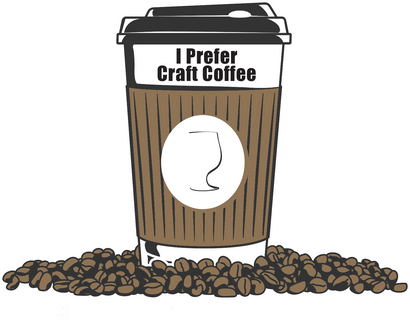Best Guide to Specialty Coffee Online: Shop Smarter, Sip Better, Never Guess Again
August 17, 2025 6 min read
Best Guide to Specialty Coffee Online: Shop Smarter, Sip Better, Never Guess Again
Welcome to the best guide to specialty coffee online—your friendly, no-fluff manual to buying beans you’ll actually love. In a few minutes, you’ll know exactly how to order coffee online, how to spot real freshness (roast date, not “best by”), and how to match flavor to your taste on purpose, not by accident. The end result? Better mornings, fewer “meh” cups, and the kind of confidence that makes your kitchen feel like the best craft coffee at home.
Why Online Coffee Buying Feels Gard (and how to fix it)
Let’s be real: the internet is a buffet of mystery beans with treasure-map labels like “midnight vibes” and “sunrise thunder.” Cute? Sure. Useful? Not really. When you’re hunting the top specialty coffee online, three things change the whole game:
-
Quality signals (Specialty 85+ and clear details) keep you out of the “burnt popcorn surprise” zone.
-
Verified freshness (roast date on the bag) protects flavor; a vague “best by” is about shelf life, not taste peak.
-
Roaster style match (light/medium/dark) aims flavor at your target—whether that’s fruity sparkle, chocolatey comfort, or bold and toasty.
Stack those three and your hit rate skyrockets. Sprinkle in a tiny bit of process and roast knowledge, and you’ll scroll through product pages like a mind reader. That’s how you pick the best coffee to buy online for you, not for a fictional pirate with excellent cheekbones.
The Specialty Coffee Playbook
1) Start with Quality (Specialty 85+ and honest info)
Specialty coffee is graded on a 100-point scale by trained tasters; 85+ is your “good neighborhood” sign. On a product page, look for:
-
Mentions of specialty, Q-grade, or 85+
-
Transparent origin, variety, altitude, and process
-
Tasting notes that sound like food (strawberry, cocoa, caramel) instead of poetry riddles
Bonus: If the roaster mentions air-roasting, that often means more even heat, cleaner cups, and brighter flavor clarity—great for bringing out origin character.
2) Freshness You Can Verify (Roast date > “Best by”)
Coffee is a fresh food with a flavor window.
-
General peak: Days 2–14 post-roast
-
Still good: Days 15–30, a bit calmer
-
After ~30 days: many coffees fade (some last longer, but don’t bet your morning on “maybe”)
Rest time by roast:
-
Light: 3–7 days
-
Medium: 2–5 days
-
Dark: 1–3 days
Storage: Keep sealed, cool, dry, and dark (pantry, not fridge). Use the one-way valve, squeeze air out, and reseal. Whole bean keeps aroma longer; grind just before brewing for maximum “wow.”
Red flags: Only “best by,” no valve, no roast date, or shipping delays that push you outside the flavor window. That’s not freshest craft coffee online, that’s bean FOMO.
PS - You don't need a cool coffee bean container, the bag works just as well and it's FREE.
3) Pick Your Roast Lane (light / medium / dark)
-
Light (bright & expressive): berries, citrus, florals; lively acidity; lighter body
-
Medium (sweet & familiar): chocolate, nuts, caramel; rounded acidity; medium body
-
Dark (bold & toasty): roastiness, baker’s chocolate; low acidity; heavier body
Quick picker:
Say “fruity” → Light.
Say “chocolatey” → Medium.
Say “smoky/strong” → Dark.
4) Processing Decoder (steers sweetness, aroma, body)
-
Washed: fruit removed before drying → clean, crisp, tea-like clarity (apple, citrus, florals)
-
Natural: dried inside the fruit → jammy, fruit-forward, bigger aromatics (blueberry, strawberry)
-
Honey: some sticky fruit left on → rounded sweetness, balanced sparkle (honey, stone fruit)
-
Anaerobic: sealed-tank fermentation → tropical, spiced, sometimes funky (pineapple, cola)
-
Wet-hulled (often Indonesia): deep, earthy, syrupy body (cocoa, cedar, herbal)
Memory hook: Clean & crisp = Washed. Sweet & jammy = Natural. Sweet & smooth = Honey. Tropical & wild = Anaerobic. Deep & earthy = Wet-hulled.
5) Roast Level Changes What You Taste (the useful nerd bit)
-
Aroma & flavor: Light preserves origin aromatics (floral/berry). Medium emphasizes Maillard sweetness (caramels/chocolates). Dark pushes caramelization/pyrolysis (roasty, smoky, bittersweet cocoa).
-
Acidity (pleasant brightness): Light > Medium > Dark (generally).
-
Body/mouthfeel: Darker roasts feel heavier; lighter roasts feel juicier.
-
Solubility (extraction ease): Dark > Medium > Light. Lighter roasts need finer grind and stronger technique.
If your cup tastes…
-
Sour/sharp → grind finer, brew hotter/longer, or try medium and/or washed
-
Bitter/ashy → grind coarser, brew cooler/shorter, or try lighter roast
-
Flat/dull → try natural or honey process or one notch lighter roast
6) Brew Pairings (so coffee & gear become besties)
-
Drip / Pour-over: Light or medium; washed, honey, or clean naturals to showcase clarity & sweetness
-
French press: Medium or dark; honey, washed, or wet-hulled for body & cocoa
-
Espresso: Medium–dark for classic chocolate/nut shots; light–medium naturals for modern fruit shots (requires careful dialing)
-
Iced / Flash brew: Light–medium washed or honey for bright, sweet flavors over ice
Comparison Table: Flavor GPS (what you like → what to buy)
| If you love… | Roast Lane | Process | Likely Notes | Great With |
|---|---|---|---|---|
| Bright fruit & tea vibes | Light | Washed | citrus, florals, stone fruit | Pour-over, drip |
| Blueberry jam & candy aromatics | Light–Medium | Natural | blueberry, strawberry, candy | Pour-over, iced |
| Dessert-y comfort | Medium | Honey | caramel, nougat, red apple | Drip, espresso |
| Deep & earthy | Medium–Dark | Wet-hulled | cocoa, cedar, spice | French press |
| Classic “coffee-coffee” | Medium–Dark | Washed/Honey | chocolate, toasted nuts | Drip, espresso |
| Tropical & wild | Light–Medium | Anaerobic | pineapple, spice, cola | Pour-over (small bag first!) |
Read Any Product Page in 30 Seconds (No-Regret Audit)
-
Quality: says specialty / 85+ (bonus: air-roasted)
-
Freshness: roast date shown, frequent roast schedule, ships quickly
-
Style: clear light/medium/dark
-
Process: washed/natural/honey/anaerobic/wet-hulled listed
-
Notes: believable & specific (cocoa, almond, cherry), not fantasy
-
Transparency: origin, altitude, variety (when possible)
-
Contact: roaster invites questions (chat/email/DM) — conversation wins
Copy-Paste Message to Get a Bullseye Recommendation
“Hey! I like [fruity / chocolatey / smoky] flavors. I brew [pour-over / drip / French press / espresso]. I prefer [light / medium / dark] roasts. Do you have something [washed / natural / honey / etc.] with a recent roast date? Bonus if it has [note you love: strawberry / caramel / dark chocolate].”
A good roaster will reply like a friendly guide. If they don’t, that’s your sign to look elsewhere among the top specialty coffee online options.
60-Second Checkout Checklist (tape this to your mug)
-
Specialty 85+? → Yes
-
Air-roasted mention? → Nice to have
-
Roast date visible (not just best by)? → Yes
-
Roast lane matches you (light/medium/dark)? → Yes
-
Process fits flavor goal (washed/natural/honey/…)? → Yes
-
Grind matches gear (whole bean, medium, coarse, fine)? → Yes
-
Shipping lands inside Days 2–14? → Yes
-
Perks like best coffee online free shipping don’t delay freshness? → Yes
Do that and you’ll stop gambling on bags and start collecting favorites. That’s the whole trick to building the freshest craft coffee online routine at home.
Smart Shopper Notes
-
When you order coffee online, prioritize roast date transparency and responsive roasters.
-
“Best” is personal: the best coffee bean delivery for a chocolate lover won’t match a fruit chaser.
-
Shipping perks are nice, but they should serve freshness, not sabotage it.
FAQ
1) What makes coffee “specialty,” and why should I care?
Specialty coffee is graded 85+ by trained tasters, signaling cleaner cups and clearer flavors. It raises your floor, so “bad” cups are less likely.
2) Is the roast date really that important?
Yes. Coffee’s tastiest window is typically Days 2–14 post-roast, then it gently calms. A roast date tells you when flavor started peaking; “best by” is about shelf life, not peak taste.
3) Which roast level should I pick if I’m new?
Start medium. It leans chocolate/caramel and works across drip, pour-over, and espresso. Then branch to light (fruit/tea) or dark (bold/toasty) as you learn your preferences.
4) What’s the safest processing method for everyday drinking?
Washed for clean, crisp cups. Honey if you want extra sweetness without big fruit. Natural is great when you want fruit-forward aromatics.
5) Whole bean or pre-ground?
Whole bean keeps aroma longer. If you need pre-ground, ask for brew-specific grind (coarse for French press, medium for drip/pour-over, fine for espresso).
6) How do I time shipping so my coffee arrives in the peak window?
Aim for delivery 2–7 days after the roast date. That’s how you turn delivery into flavor rather than “surprise, it’s sleepy already.”
7) Can I make café-level cups without fancy gear?
Absolutely. A reliable grinder, filtered water, and consistent ratios will beat guesswork every time. Gear helps, but technique + fresh beans matter more.
PSS: Quick win today—open a product page, confirm specialty 85+, verify a recent roast date, and pick light (fruity), medium (chocolatey), or dark (bold) to match your taste. That simple trio turns “shopping” into the best guide to specialty coffee online—in action, in your mug, tomorrow morning.
Also in Best Coffee To Buy Online Education

Best Fresh Roasted Coffee Delivery Online
November 28, 2025 4 min read
I roast the best tasting coffee at home for you! I use 100% electric equipment, so no hydrocarbons here. Best fresh roasted coffee delivery starts with high-scoring specialty coffee online.

Which Roaster Makes Better Coffee: Gas or Electric?
November 27, 2025 4 min read
Why electric drum roasters produce cleaner, sweeter, more consistent coffee—especially the kind you want when buying fresh roasted coffee beans online or trying to make the best tasting craft coffee at home.

Biggest Coffee Buying Mistake at Home
November 26, 2025 4 min read
Learn why the roast date matters and how to buy fresh, high-quality specialty coffee online. No guesswork when you order coffee online with me. I only stock, roast, and process the best tasting craft coffee at home. I am YOUR personal roaster.
